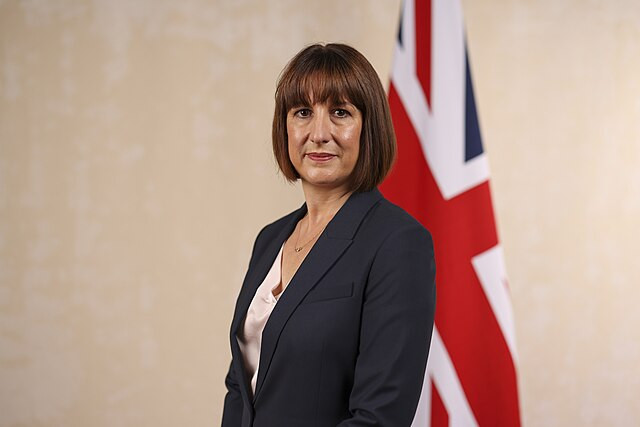Britain's new Labour government, under Treasury chief Rachel Reeves, is set to announce significant spending cuts on Monday, citing a newly identified £20 billion ($26 billion) shortfall in public finances. The shortfall, which Reeves attributes to the former Conservative administration's fiscal mismanagement, has led to the cancellation or postponement of several major transport projects.
In a highly anticipated speech, Reeves plans to accuse the previous government of concealing the dire state of the nation's finances. "It is time to level with the public and tell them the truth," she is expected to declare in the House of Commons. "The previous government refused to take the difficult decisions. They covered up the true state of the public finances. And then they ran away."
The Labour Party, which secured a landslide victory to return to power for the first time in 14 years, has pledged not to raise taxes on "working people." However, Reeves' comments are seen as laying the groundwork for a revenue-raising budget in the fall. While higher income and sales taxes are off the table, the Treasury may explore other avenues for increasing revenue, such as closing tax loopholes related to capital gains and inheritance.
Reeves is also expected to establish a new office dedicated to identifying "wasteful spending" and will halt nonessential spending on consultants. Among the transport projects potentially affected are a controversial tunnel near Stonehenge and the extension of a high-speed rail line into central London.
Critics, including her predecessor Jeremy Hunt, have accused Reeves of political grandstanding. Hunt argues that Reeves was fully aware of the state of public finances during the general election. The Institute for Fiscal Studies, an economic think tank, had previously accused both major parties of a "conspiracy of silence" regarding the financial challenges facing the incoming government.
Despite efforts to curb spending, the government is confronted with several pressing issues that will require additional funds. Notably, there is growing optimism that a resolution to the long-running junior doctors' strike in England may be imminent. Reports indicate that junior doctors have been offered a pay increase of 22% over two years, which could end their industrial action that has occurred 11 times over the past 20 months.
The state of the National Health Service (NHS) was a pivotal issue during the election, with Labour describing the system as "broken" and highlighting the 7.6 million people awaiting care. Annie Williamson, a research fellow at the Institute for Public Policy Research and a practicing NHS doctor, emphasized the importance of resolving the strikes to restore the NHS. "An end to strikes is a crucial first step to getting the NHS back on track," Williamson stated. "Yet the government must also address the root cause of why they've happened in the first place."
Prime Minister Keir Starmer's office echoed the sentiment, declaring Britain as "broke and broken" and attributing the fiscal crisis to the former Conservative government's overspending. "The previous government overspent this year's budgets by billions of pounds after making a series of unfunded promises," a statement from the finance ministry read.
Labour's proposed measures to address the shortfall include the establishment of an Office of Value for Money, a crackdown on government waste, reduced use of external consultants, and the sale of unused government property. Reeves is expected to present these plans to Parliament, emphasizing the need for transparency and fiscal responsibility.
In response, the Conservatives have dismissed Labour's accusations as a pretext to justify potential tax increases. Gareth Davies, a Conservative lawmaker, accused Reeves of attempting to deceive the public. "Rachel Reeves is trying to con the British public into accepting Labour's tax rises. She wants to pretend that the OBR [Office for Budget Responsibility] ... whose forecasting was used in all of the last Conservative government's budgets, doesn't exist," Davies asserted.






